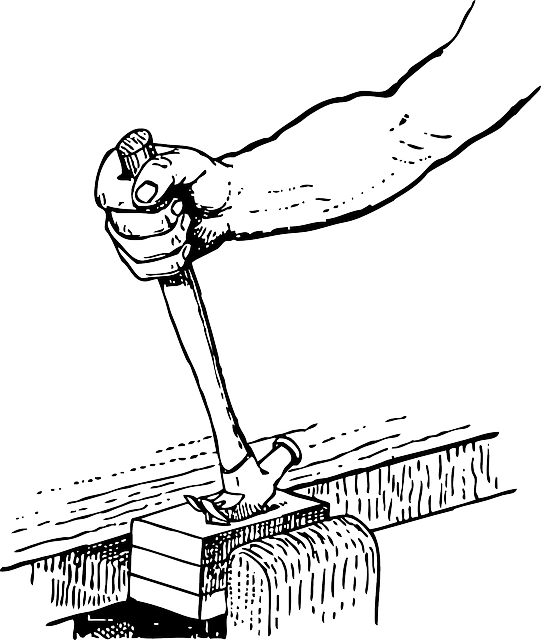Oregon defendants often make critical mistakes by misinterpreting plea bargains due to a lack of understanding about their binding nature and long-term consequences. Neglecting thorough evidence reviews can lead to overlooked defenses, while ineffective communication between attorneys and clients fosters misunderstandings. Jury selection, a key phase often ignored, significantly impacts case outcomes. Mastering these aspects is crucial to avoid Oregon defense mistakes and ensure fair trials.
In the complex landscape of Oregon’s criminal justice system, even experienced attorneys can fall prey to common pitfalls. This article uncovers critical mistakes often made in Oregon’s criminal defense, from misinterpreting plea bargains and neglecting evidence review to ineffective client communication and jury selection blunders. By understanding these errors, legal professionals can enhance their strategies, ensuring a more robust defense for their clients. Key areas of focus include the hidden consequences of misinterpreted pleas, missing crucial defenses due to inadequate evidence review, building trust through effective client communication, and shaping your case’s fate through meticulous jury selection.
- Misinterpreting Plea Bargains: The Hidden Consequences
- Neglecting Evidence Review: Missing Crucial Defenses
- Ineffective Communication with Clients: Building Trust
- Ignoring Jury Selection: Shaping Your Case's Fate
Misinterpreting Plea Bargains: The Hidden Consequences

Many defendants in Oregon make the mistake of misinterpreting plea bargains, often because they don’t fully understand the consequences. A plea bargain is an agreement between the defendant and the prosecution, where the defendant pleads guilty to a lesser charge or accepts a more favorable sentence in exchange for admitting guilt. However, once this agreement is made, it’s binding, and any misunderstanding can lead to severe hidden consequences.
Defendants may believe they can still contest certain aspects of their case even after accepting a plea bargain. This isn’t the case; by pleading guilty, they waive their right to appeal most issues related to their arrest, trial, and sentencing. Furthermore, some plea agreements include clauses that could impact future legal matters, such as restrictions on seeking post-conviction relief or specific conditions for probation. Misinterpreting these terms can result in significant legal complications down the line, potentially affecting future opportunities and freedom.
Neglecting Evidence Review: Missing Crucial Defenses

In the complex landscape of Oregon’s criminal justice system, one of the most common and detrimental mistakes made by defendants and their legal representatives is neglecting a thorough evidence review. This oversight can be devastating, as it often leads to crucial defenses being left unexplored or unnoticed. With every case containing a unique set of facts and circumstances, an extensive examination of all available evidence is essential to build a robust defense strategy.
Defendants may assume that their attorneys will automatically uncover all relevant information, but this isn’t always the case. Evidence can be subtle, circumstantial, or easily overlooked. For instance, digital forensics, witness statements, and physical evidence might require specialized attention to interpret and challenge effectively. Without a comprehensive review, potential weaknesses in the prosecution’s case could go unnoticed, resulting in unfair convictions.
Ineffective Communication with Clients: Building Trust

In the dynamic landscape of Oregon’s criminal justice system, one of the most common yet easily preventable pitfalls for defense attorneys is ineffective communication with clients. Building a strong foundation of trust is paramount to ensuring a robust defense strategy. Often, mistakes arise from misaligned expectations or a lack of open dialogue between attorney and client. This can lead to misunderstandings about case strategies, potential outcomes, and even basic procedural steps.
Effective communication involves active listening, clear explanations of legal concepts, and consistent updates on case progress. When clients feel heard, respected, and informed, they are more likely to cooperate fully with their counsel. This collaboration is essential for gathering crucial evidence, identifying potential weaknesses in the prosecution’s case, and making informed decisions about plea bargains or trial strategies. For Oregon defense attorneys, mastering the art of communication can significantly enhance client outcomes and overall case management.
Ignoring Jury Selection: Shaping Your Case's Fate

In the high-stakes world of Oregon criminal defense, one of the most critical yet often overlooked aspects is jury selection. Ignoring this crucial phase can significantly impact a case’s outcome. During jury selection, both the defendant and prosecution have an opportunity to shape the narrative by carefully choosing the jurors who will decide their fate. It involves assessing potential biases, understanding individual perspectives, and strategically excluding or retaining jurors to ensure a fair trial.
Failing to pay close attention to this process may lead to subtle yet profound errors. For instance, a defendant might end up with a jury that leans heavily towards the prosecution’s perspective due to ineffective challenges or misunderstandings of legal procedures. Conversely, an attorney who fails to recognize and address potential red flags in a juror’s background could inadvertently introduce bias into the trial. Thus, recognizing the significance of jury selection is paramount for Oregon defense attorneys, as it plays a pivotal role in navigating the complexities of a criminal case.














